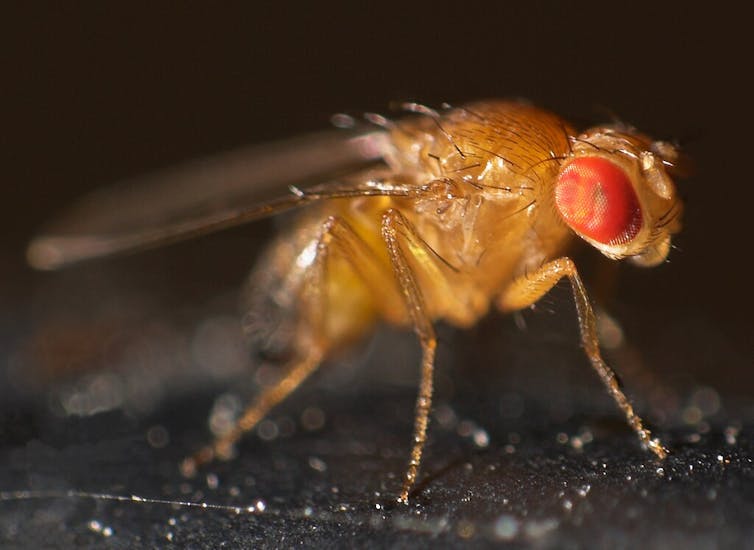Science
Scientists Highlight Need for Diverse Approaches in Biology Research

The complexity of biological systems demands a diverse range of scientific research approaches. Recent findings highlight how critical varied perspectives are in understanding the intricate interactions that define life. Researchers, including Thomas Merritt and Allie Hutchings, emphasize that the advancement of biology hinges on collaborative efforts that incorporate multiple viewpoints.
Understanding biological complexity has evolved significantly since the sequencing of the human genome in 2001. Initially, scientists estimated the number of human genes to be between 80,000 and 100,000, but this figure was later revised to about 20,000. This reduction does not imply simplicity; rather, it indicates that each gene must perform multiple functions, necessitating a deeper understanding of gene interactions.
Unraveling Gene Regulation through Innovative Research
The research team at Laurentian University utilizes the fruit fly, Drosophila melanogaster, as a model organism to explore gene regulation. Traditionally, it was assumed that the two copies of each chromosome operate independently. However, unexpected findings reveal that these copies physically interact, co-regulating each other based on the genome’s structure. This phenomenon, known as transvection, challenges long-standing assumptions about gene regulation, which has typically focused on individual chromosomes.
Transvection was first described in the 1950s but remains underappreciated in the scientific community. The subtle effects of this inter-chromosomal regulation are often overshadowed by more conventional mechanisms. The research underscores the importance of considering unexpected interactions in biological systems, a perspective that can lead to innovative solutions.
The team’s investigations also extend to stress biology, where they found that diverse responses to environmental factors are the norm. This observation contradicts the oversimplified views often taught in educational settings, such as those illustrated by Gregor Mendel’s classic pea plant experiments. The variability observed in traits like eye color illustrates that genetics operates along a spectrum rather than in binary terms.
Recognizing Gender Differences in Biological Research
The research also highlights significant differences between male and female fruit flies, particularly in their responses to metal toxicity. Recent unpublished data indicates that the variance in responses can be as pronounced as what might be expected between different species. This challenges the outdated notion that male and female biology is interchangeable, suggesting that nuanced understanding is essential for accurate scientific investigation.
Collaborative efforts have proven crucial as the complexity of the research often requires input from multiple disciplines. Each project typically involves a range of experimental methods, from biochemistry to genetics, and employs techniques such as mass spectrometry and DNA sequencing. The diverse makeup of the research group at Laurentian University has enhanced the originality and quality of their contributions to the field.
The correlation between diversity and innovation is well-documented. Large-scale studies indicate that teams composed of researchers from varied backgrounds pose more insightful questions and devise creative solutions. This connection is vital for the progress of scientific inquiry, yet it faces challenges in the current sociopolitical climate.
The ongoing struggles against diversity in research, particularly evident in the United States and Canada, threaten to stifle scientific advancement. Attacks on inclusivity initiatives risk narrowing the perspectives necessary for groundbreaking research. Current diversity in science is the result of decades of efforts to combat systemic discrimination, and it is crucial to sustain these initiatives for the future of scientific inquiry.
Visibility and representation in scientific research are key to attracting new talent. Ensuring that diverse voices are heard will encourage more young students to pursue careers in these fields. The hope is that a broader appreciation of diversity’s importance will foster greater community and political support for research initiatives that prioritize equity and inclusion.
The biological world is inherently complex and diverse, and understanding it requires research environments that reflect that same diversity. By embracing a variety of perspectives, scientists can unlock new avenues of understanding that will ultimately benefit the entire field.
-

 Politics4 weeks ago
Politics4 weeks agoSecwepemc First Nation Seeks Aboriginal Title Over Kamloops Area
-

 World5 months ago
World5 months agoScientists Unearth Ancient Antarctic Ice to Unlock Climate Secrets
-

 Entertainment5 months ago
Entertainment5 months agoTrump and McCormick to Announce $70 Billion Energy Investments
-

 Science5 months ago
Science5 months agoFour Astronauts Return to Earth After International Space Station Mission
-

 Lifestyle5 months ago
Lifestyle5 months agoTransLink Launches Food Truck Program to Boost Revenue in Vancouver
-

 Technology3 months ago
Technology3 months agoApple Notes Enhances Functionality with Markdown Support in macOS 26
-

 Lifestyle3 months ago
Lifestyle3 months agoManitoba’s Burger Champion Shines Again Amid Dining Innovations
-

 Top Stories2 months ago
Top Stories2 months agoUrgent Update: Fatal Crash on Highway 99 Claims Life of Pitt Meadows Man
-

 Politics4 months ago
Politics4 months agoUkrainian Tennis Star Elina Svitolina Faces Death Threats Online
-

 Sports5 months ago
Sports5 months agoSearch Underway for Missing Hunter Amid Hokkaido Bear Emergency
-

 Politics5 months ago
Politics5 months agoCarney Engages First Nations Leaders at Development Law Summit
-

 Technology5 months ago
Technology5 months agoFrosthaven Launches Early Access on July 31, 2025











